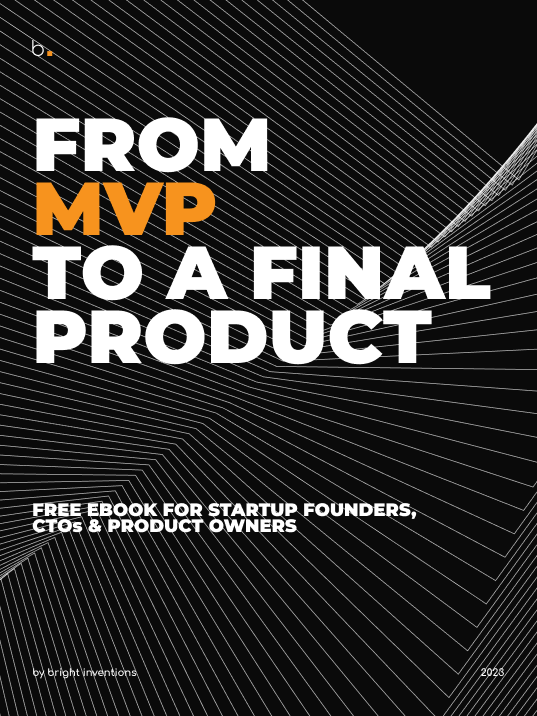Why a Small Budget for App Development Can Be an Advantage for Startups
A smaller budget at the beginning of your startup story may help you build the project with bigger chances of succeeding. How come? Check out why a limited budget can enhance creativity, simplicity, and data-driven development.
Learn even more about MVP development

A low budget helps to make rational decisions while building MVP
1. Choose only crucial features, not every feature you’d love to have.
Sometimes, CTOs and startup founders forget that building MVP (Minimum Viable Product) is not about delivering a perfect solution that has it all. At the beginning of the development process, you should choose only key features to include in your MVP. It helps you to limit your spending on software development.
Remember that there is no guarantee that your MVP will be a success. The advantage of an MVP is its short time to market – you can quickly and affordably verify your MVP with users and start making data-driven decisions. MVP is to learn from data and adopt.
A small budget won't let you succumb to the temptation to overbuild your MVP. Sometimes, the features you build will not be appreciated by users. Therefore you might need to change your strategy or even give up on your idea with – hopefully – big lessons for the future.
2. You don’t necessarily need two apps for both stores.
Are you experiencing a smaller budget for mobile development? How about building an app only for one operating system? Just like Instagram did. They launched their app first on the App Store. Sometimes it’s worth focusing on one platform in the initial phase.
Or consider going for hybrid app development. With tools like Flutter or React Native, you can build one app for both ecosystems. Although these cross-platform apps carry some limitations, they can be a viable solution for a startup with a small budget.
Limited funds protect from losing money on a product that won’t attract clients
As we stated earlier, not every MVP will be successful. Actually, most startups fail. So a smaller budget enables you to save costs and minimize financial risk. Even if you verify your idea before the development process starts, the proper validation comes after the MVP launch. Then you will know if your solution is attractive to users and can get you clients.
If not, you can always try to pivot, just as other giants did. Check out Twitter, Instagram, or YouTube pivot stories.
A tight budget helps to be creative and keep it simple and UX-friendly at the same time
A smaller budget pushes you to look for simple but still high-quality solutions. It's great when you have a team or MVP partner who is flexible in looking for creative ways when they are more beneficial.
I asked our colleagues how they find more creative and often low-cost ways to meet client’s goals. Here’s an example:
Implementing a low-cost and more user-friendly solution
The client wanted to implement quite complex functionality, which was designed as a set of 5 separate screens. After analyzing the client's requirements, we proposed a more straightforward solution that included all the necessary features on a single screen. Following a consultation with the designer, the client chose our proposal, which turned out to be easier to implement and more user-friendly.
A small budget helps to create an app that users need and want
A smaller budget makes you go deeper into analytics, and that's great! Analytics is often neglected. After the MVP launch, startup founders often focus too much on app reviews rather than actually going deeper into users' activity.
Thanks to analytics tools like Firebase and Mixpanel, you can check what features your users really use, what screens engage them, and what features you can simply give up on. Read more about mobile MVP success metrics to know what to measure if you build a mobile solution.
Not many startups can afford to keep developing the product of their dream, rather than the product their users desire… We recommend you follow the user-oriented path. 🙂
